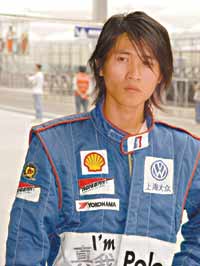Online crowd gets out of control
 If Hu Ge was an unintentional revolutionary, Han Han (pictured) set out to sculpt the image of a rebel by tearing down the mansion of the establishment brick by brick.
If Hu Ge was an unintentional revolutionary, Han Han (pictured) set out to sculpt the image of a rebel by tearing down the mansion of the establishment brick by brick.
Early in the year, he attacked literary critic Bai Ye, setting in motion Chinese literature's biggest brawl in years. Later in the year, he laughed at a "nationally ranked poet" and called those in the Chinese Writers Associations "mistresses" who sold off their independence. In between these events, he racked up 50 million hits for his blog and became the de facto spokesman for the Internet age.
The forces he unleashed became so vociferous when millions joined him that literary criticism soon morphed into mudslinging of the ugliest kind. Those on the receiving end exited the bloody bullring. Soon, the unruly were dubbed "online mobs" by mainstream media.
When virtual anger spilled over into the real world, actions in the name of high-minded platitudes teetered on the brink of ethics and legality. Online sleuthing became a favorite pastime for people investigating and exposing the real identities of those they regarded as immoral. A cat abuser was tracked down. A young man accused of adultery was driven into self-exile. A self-claimed latter-day Don Giovanni made life a little unsafe for all Western teachers based in China.
Regulators considered making it mandatory for bloggers to use their real names, thus removing their veil of anonymity. Critics contend that this would take away a major pressure-valve mechanism for many.
(China Daily 01/04/2007 page18)














